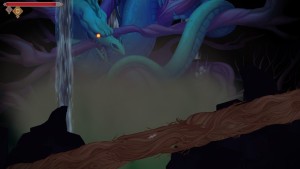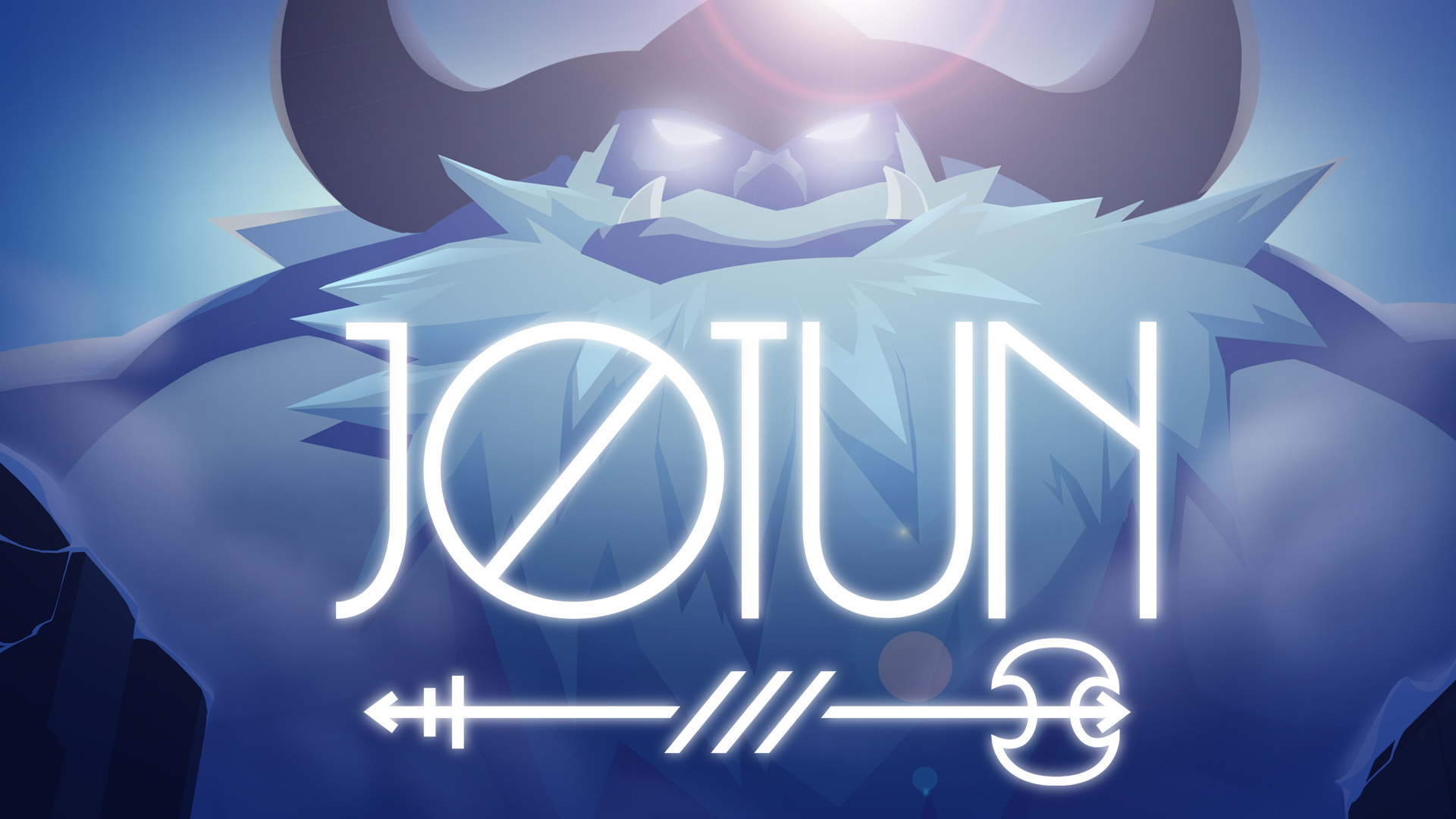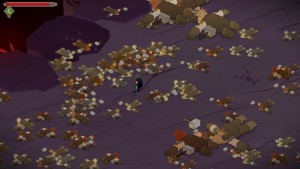Jotun is the tale of a Viking warrior denied access to Valhalla for her inglorious death because, despite being a fearsome warrior, she managed to drown with the sinking of her long ship. The Norse gods are famously loose on the details, so despite a lifetime of implied ass kicking the fact that she never got herself killed means she’s out of luck.
That is at least until a booming voice, presumably belonging to a cycloptic know-it-all informs you that you can still get into Valhalla, but you’re going to have to kill five Jotun (a kind of Norse Titan) to do it. This seems like a slightly unreasonable request, considering getting into Valhalla for most people is as easy as losing a knife fight, but I guess when you’re waiting for Ragnarok you’ve got to make your own fun.
It just feels awesome. People who enjoyed Titan Souls and Shadow of the Colossus will find the boss fights recognizable, though with more of a tendency to throw nameless mooks at you than either of those games did, the consistency is mainly in the sense of scale. Jotun, as their name implies, are massive, with each swing of your mighty battleaxe equivalent to little more than a splinter and rarely, if ever, reaching beyond their toes. This is what the game does well, providing the player with these beautiful, hand drawn challenges and letting you work out how best to dispose of them, and a straight assault, while often unwise, is never off the cards. Each boss has a certain pattern and the arenas often have features you can take advantage of to make the fights easier, but there’s no real reason you can’t just take your axe and set about reducing your opponents to meat through industrious chopping. In truly Viking fashion, muscle is necessarily, strategy is optional.
With only five bosses, Jotun meets the need for content with a number of smaller, explorative levels between each big fight, giving you a handful of well-designed lands to wander, some of which populated by wandering mooks and others, like the exceptional level set in the roots of Yggdrasil, being more explorative. There’s still plenty of challenge. The map, while complete and accurate from the get-go, contains few details and no marker of your location, forcing you to deduce it yourself. In the more basic levels this doesn’t pose anything like a challenge, hence the introduction of a thousand dwarfs wielding hammers, but in others, such as amid the labyrinthine roots of the world tree, it’s a different, more cerebral type of puzzle.
And if you don’t think a level can be challenging without also trying to kill you, the finale has you avoiding a mountain-range’s worth of falling rocks.

Thora’s in the image, believe it or not. She’s the tiny dust-could at he bottom, trying not to be noticed.
What Jotun does best though is creating atmosphere. Thora speaks entirely in Norwegian with subtitles, the soundtrack is gentle and engrossing and the occasional panning shots demonstrate, in an inarguable way, just how small you are. In life Thora might have been a larger-than-life Viking, but here she’s little more than a plaything of the gods, heaving herself and her battle-axe through a world bigger and stranger than she can understand. It loses a lot to this simplicity; combat is simply a quick attack, slow attack, dodge and magic without any real complexity, the only skill is determining when to use heavy or light attacks and when to dodge. There’s a possibility of complexity in your use of magic, but for a long while they do nothing more interesting than restoring your health or temporary invulnerability, leaving murder to the simple swings of your ridiculous axe.
Curiously enough, Jotun isn’t particularly difficult. There’s difficulty there, certainly, but past experience taught me to expect another bastard hard festival of getting my arse kicked, and Jotun, with its health bars, well-telegraphed enemy attacks and revitalizing magic is surprisingly forgiving. It’s certainly not, as expected, another Titan Souls. What it is instead is a beautiful, atmospheric and hearty plunge through Viking lore that does more than enough to impress.
Tags: Hollywood Metal, Jotun, Luke MCategorised in: Video Games


